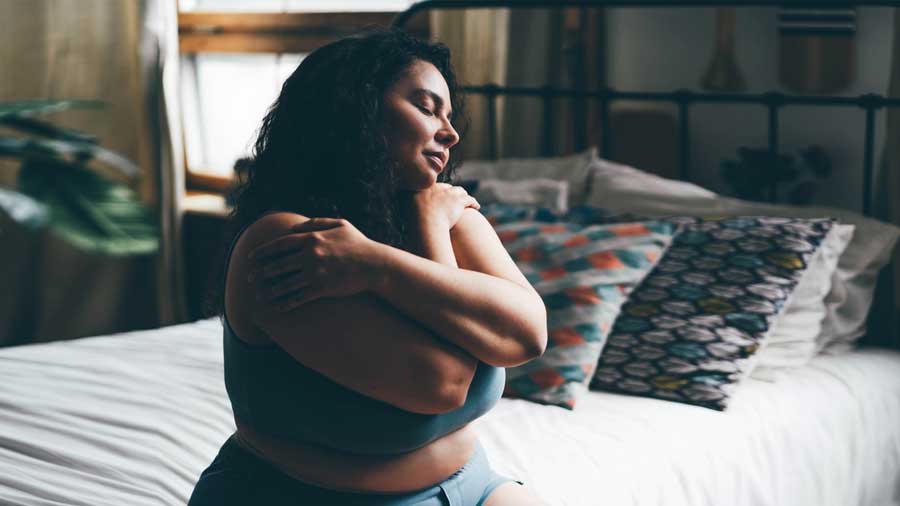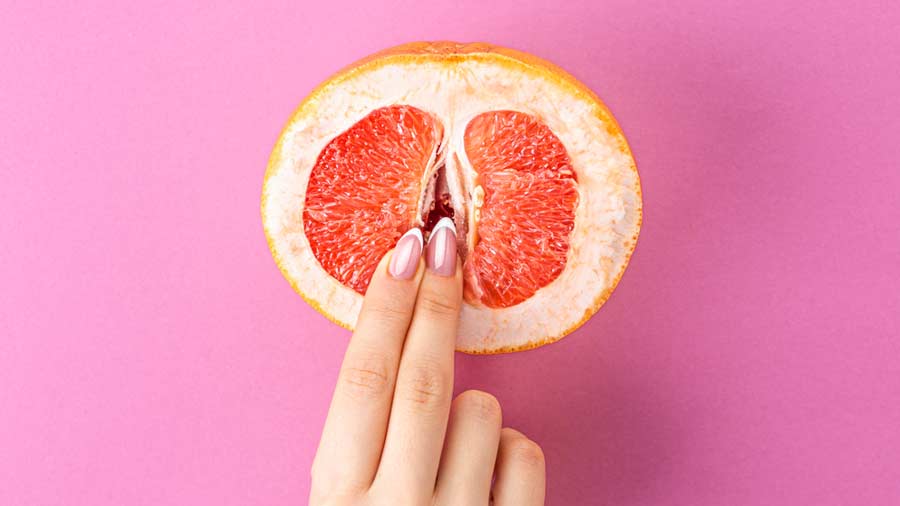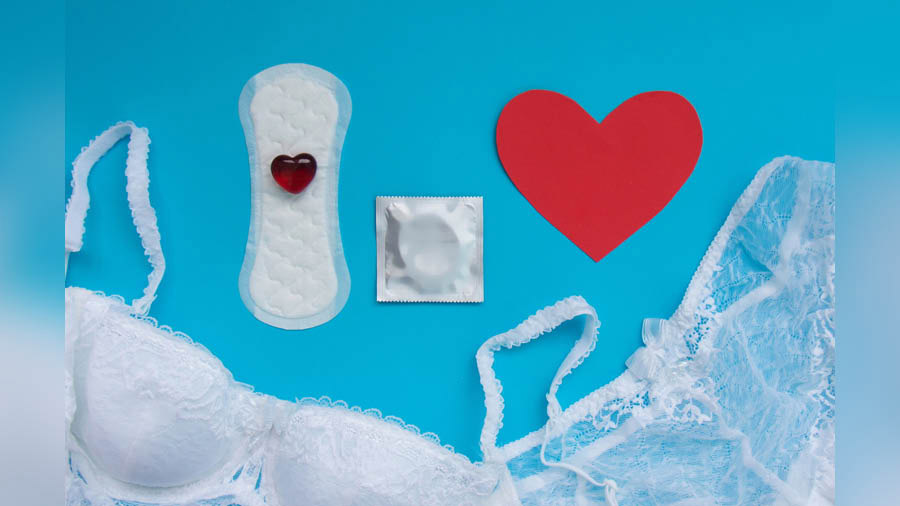“I have been wondering whether people with vaginas masturbate. I’m not sure if it's common for girls to masturbate, and I don’t know if it is okay for me to even try? I am worried about inserting things inside my vagina. I feel clueless and I’m not sure if this is okay to even consider, but I am curious about what I am missing out. What are some ways to explore this?”
— Self-love “Sara”
Dear Self-love Sara,
Your question sheds light on a pretty common misconception and you are not alone in wanting to explore this! People of any gender can masturbate.
In patriarchal cultures, women and folks with marginalised gender identities tend to be perceived as objects rather than agents of sexuality. Masturbating for men is somewhat normalised — you may have a random aunt who thought it was funny to nudge-nudge-wink-wink “boys will be boys”, and talking about them “needing” to lock doors as teenagers. No such concessions are made for girls and nonbinary folk. Instead, we are taught that we are only givers of pleasure. Culture aside, our bodies are wired to both like and want pleasure (both sexual and non-sexual).
It’s really up to you whether or not you want to explore masturbation. Our culture/religions often tell us pleasure and indulgence are not okay, and can be especially harsh about sexual pleasure. Culture aside, there is nothing wrong with masturbating and it is not inherently bad for you. In fact, getting to know your body can help you feel a lot of control and agency around your pleasure.
Get exploring
We spend so much of our lives being told vaginas are ‘gross’ and ‘dirty’ (they’re not!) that we become estranged from our vaginas.
As a first step, get to know your vulva (the outer part) and your vagina. Look in a mirror, map out the parts and look at a diagram that helps you find the main characters down there. Once you have a lay of the land, start figuring out what types of touch feel good and where to map out your pleasure zones.
If you get to know your body and what types of stimulation work for you when you are alone, you can be much more prepared for partnered sex (if you want it). Exploring your body alone can be a low-stress environment for you to figure out if you like it fast, slow, wet, soft, etc, and can let you communicate it better with your partner.
Wetter is better
When you touch yourself down there, if you are using your hands, toys or any other surface, make it wet using some type of lubricant. Lubricants can be anything that makes your vulva slippery for a good slip-and-slide — water is not a great lubricant because it isn’t very slippery the way oil is, for example.
Using lube makes any touch down there generally feel better (smoother) and can reduce the risk of any friction-related cuts or tears. The simplest lubes can be your own saliva, vaginal fluids or even menstrual blood. An ideal option would be a store-bought flavour-free lubricant (like KY jelly or another water-based lubricant). Some people have success with organic, unscented pure natural oils like coconut oil and almond oil, but some people are sensitive to these, so do a patch test. And do NOT use them with condoms.
Turn on the ons and turn off the offs
Think about what turns you on. Is it a spicy movie? An erotic novel? A sexy podcast? Pictures of Timothée Chalamet’s razor-sharp jawline? The thought of kissing your latest crush? Figure out what helps you get in the mood.
I’ll tell you a secret: orgasms and pleasure take place in the mind.
Your mood is super-duper important to how you feel during a self-love session. This means not only doing things that can turn you on, but it also means turning off things that can turn you off.
For instance, are you super stressed out about your exam tomorrow and you can only think about quadratic equations? You may have a hard time enjoying the self-touch. But if you do find a way to momentarily feel more present in your body, masturbation can be a great way to release stress!

Your mood is important to how you feel during a self-love session
If there are things making you uncomfortable in the moment, address them. If you’re worried about someone walking in, can you lock the door? Can you find a private space or time when you are less likely to be disturbed? If you are feeling internalised shame around sex, find some sex-positive thinkers online who normalise pleasure and masturbation. Adjust your sitting position, room temperature, use soft sheets, or anything else that can help you feel comfier.
Orgasms can be difficult to come by the first time you try touching yourself, so give yourself lots of time and patience. It may even take a few different attempts. Try to relax and enjoy the journey, not fixate too much on the destination, and do it at a time you have at least half an hour to yourself.
Penetration is high-key optional
If you do feel worried about inserting things, remember that it is completely optional. The ‘female’ (vulva) equivalent of the penis is the clitoris. It is a pleasure centre and an organ whose only function is to provide you pleasure! A large majority of folks need some type of clitoral stimulation to orgasm, and many folks can orgasm with clitoral stimulation alone. Clitoral stimulation can take many forms — rubbing, touching, stroking with hands, between legs, or while using a massager (aka vibrator or toy).
Even if you do insert things, I’d recommend finding ways to not leave your clit out of the session. Also remember, not everyone bleeds their first-time inserting things into their vagina or during intercourse (read more about virginity here).
I hope this helps you embark on your self-love journey, Sara, and I wish you all the best!
Karishma Swarup is a Kolkata-born and raised sexuality educator, Instagrammer (@talkyounevergot) and works at a global consulting firm. She busts myths about sex, pleasure, intimacy, orgasms, periods, and all things related to sexual health.
If you have a question you would like Karishma to answer, send an email on mykolkata@telegraphindia.com with the subject line ‘Questions for Karishma’ or DM/comment on our Facebook, Instagram, or Twitter.




